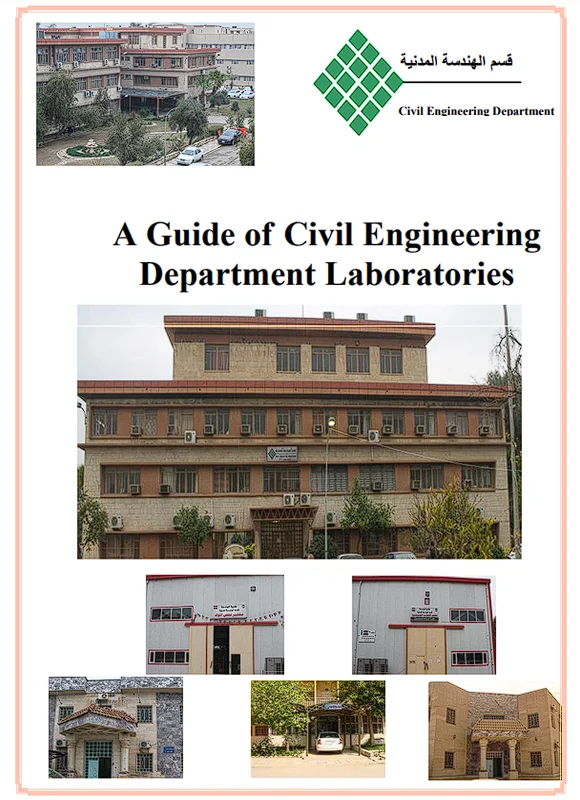Civil Engineering Laboratories
The civil engineering department is home to seven specialized laboratories that engage in both scientific research and consultancy activities.
These facilities are equipped with a variety of instruments, which undergo regular maintenance to extend their operational lifespan and ensure optimal performance.
These laboratories play a crucial role in generating high-quality research outcomes. Furthermore, they facilitate numerous testing procedures and provide consultation services.
Managing laboratories entrusted to experienced faculty members
from the civil engineering department, whose effective oversight is a key factor in the laboratories’ success.
Graduate students utilize these devices for both academic and consultancy purposes.
The testing capabilities include compression tests for concrete cubes, ceramic and cement tests, steel testing, mechanical testing of steel, concrete block assessments, evaluations of steel sections,
break tests, curbstone examinations, testing of various pipe types, as well as sand and gravel analyses and concrete mix design. Non-destructive testing methods, such as core tests,
ultrasound tests, and load tests, also employed. Notably, the Construction Materials Laboratory stands out as the largest and most significant facility among the civil engineering laboratories.
Established in 1967, the Highway Materials Laboratory focuses on analyzing the engineering properties of asphalt materials, soil, and pigments used in road construction and C. engineering projects.

